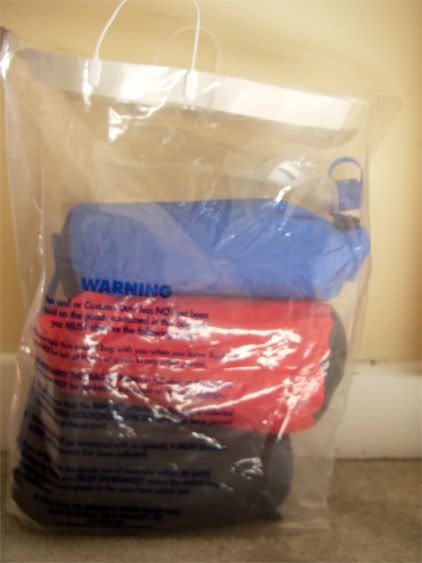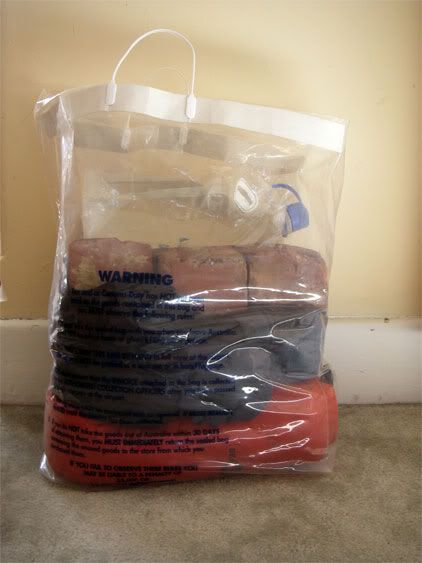REI has a good page on this:
How to load a backpack OM, they also advised putting your uncompressed sleeping bag in the bottom of the pack.
I tried it out this afternoon with a new pack that I received quite unexpectedly and learned a lot in the process. First I came back here and reviewed this thread and then poked around and found that REI page.
Now, I was tempted to take Jim's advice literally and not use a single stuff sack, but I just couldn't bring myself to do it, I did use fewer of them though, and they were loosely filled, and I have to say that it works great. When I was done it looked just like the retail photos of backpacks for sale

More importantly, I noticed when I was unpacking it my sleeping bag was not as compressed as it was in the stuff/compression sack that came with it, even when that sack was fully loosened. The biggest difference I could see was that the backpack looked completely full, but I know I could still get more stuff in it without forcing it.
Franco's demonstration illustrates why perfectly. (That's pretty cool Franco, thank you!)
I'll be looking to get a dry bag for my sleeping bag, like BrianLe uses, and I'll use the heavy duty garbage bag pack liner like Jim uses too. That will work perfect for me here.
Anyway, I want to thank you all because I just put all your experience based advice to use as best I could and it worked out great for me.


